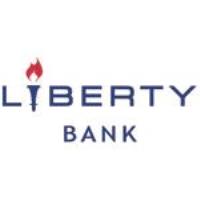There is no “easy” money.Liberty Bank Offers Fraud Prevention Advice
Nobody’s immune to fraud. While it may seem like the elderly and less tech savvy are targets of choice for scammers, it’s not necessarily true. Lately young, tech-savvy consumers have also gotten caught up in fraud schemes.
The temptation is irresistible, especially for those without a lot of ready cash ... for example, students, single parents, or those newly enlisted in the military. “Put a few extra bucks in your pocket the easy way.”
It’s called “card cracking” and scammers are hitting up their targets via Twitter, Instagram, Facebook, Craigslist, or in person on college campuses.
What’s the hook? Scammers ask the victim for their bank account information and PIN. They’ll deposit a counterfeit check into your account via mobile device. They’ll later withdraw the funds, leaving you with a small percentage of the proceeds for allowing them use of your account.
Why is it intriguing? Scammers leave the victim believing they can get something for nothing ... simply for making their account available. They tell you, since you did not initiate the transactions, all you have to do is file a fraud report on your account. The scammers claim no one will get hurt.
What’s the catch? First of all, if a scammer has your account information, he’s not going to stop at depositing a fraudulent check and then withdrawing a portion of the proceeds. He’s going to take everything. This can be done in a matter of seconds at any ATM or point-of-sale location.
Second, and more importantly, the victim has just knowingly aided a criminal. In order to file a fraud claim, the victim must also fill out a police report. If the fraud claim is determined to be invalid, the victim could be charged with filing a false police report and held responsible for repaying the bank for the amount of counterfeit check.
Stay alert! You may be approached at a party, on campus or on base, or over the internet. Before you yield to the temptation to make a fast buck, remember, if it sounds too good to be true, it is. Never give your bank account numbers and PINs to anyone. And never agree to take part in a scheme where “no one will get hurt.” That’s because the person most likely to be injured is you -- you could lose way more money than you expect to gain, your credit could be damaged, and you could be prosecuted.
If you are approached to participate in card cracking, just say no.



